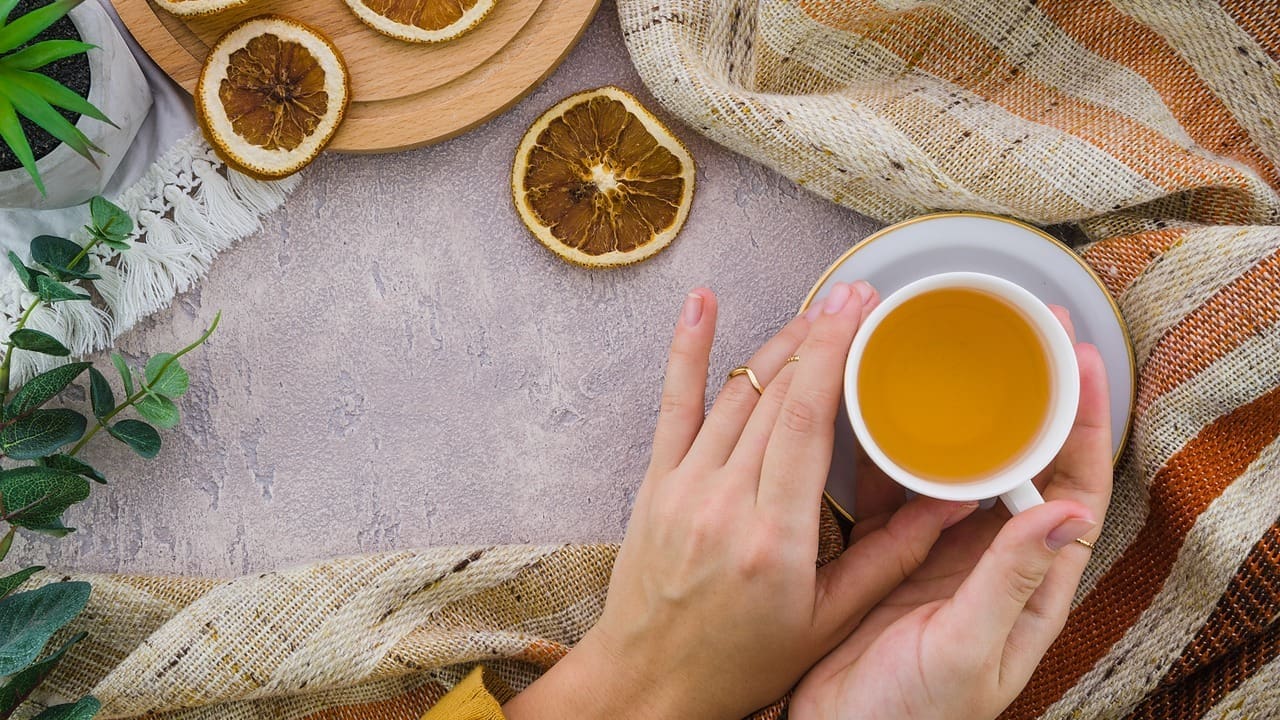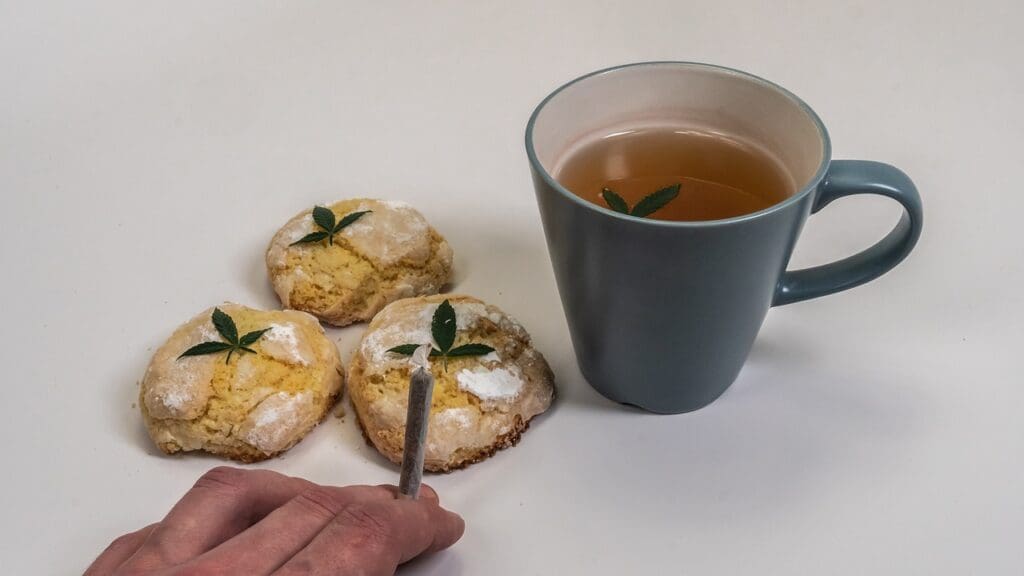
At Liv Hospital, we know how hard it is to deal with arthritis pain. It can really affect your daily life. But, some teas and drinks can help a lot. They can reduce inflammation and improve joint health.
Some drinks are full of polyphenols and antioxidants. These have strong anti-inflammatory effects. For example, green tea is very good at easing joint pain because of its high catechin content.
We will look at the top 9 teas and drinks for arthritis relief. They can help you live a healthier, more active life.
Key Takeaways
- Certain teas and drinks can reduce inflammation and alleviate arthritis pain.
- Green tea is rich in catechins, which have potent anti-inflammatory effects.
- Polyphenol-rich beverages can support joint health and overall well-being.
- Liv Hospital is committed to providing top care for international patients.
- Our expert team is dedicated to helping you manage arthritis symptoms effectively.
Understanding Arthritis and How Beverages Can Help

It’s important to understand arthritis to manage its symptoms. Beverages might help in this effort. Arthritis includes over 100 conditions that affect the joints. The most common types are osteoarthritis, rheumatoid arthritis, and psoriatic arthritis.
Types of Arthritis and Their Symptoms
Arthritis symptoms vary by type. Common signs include joint pain, stiffness, swelling, and less range of motion. Osteoarthritis involves cartilage breakdown in joints. Rheumatoid arthritis is an autoimmune disease that causes inflammation. Psoriatic arthritis is linked to psoriasis.
- Joint pain and stiffness
- Swelling and redness around the affected joint
- Reduced mobility and flexibility
How Anti-inflammatory Drinks Work for Joint Pain
Certain drinks have anti-inflammatory properties that can ease joint pain from arthritis. Green tea, tart cherry juice, and ginger tea are examples. They contain compounds that reduce inflammation and support joint health.
For example, green tea is full of catechins, which fight inflammation. Drinking these beverages daily might help manage arthritis symptoms and improve joint health.
The Science Behind Tea for Arthritis Relief

Tea’s effects on arthritis have caught the eye of many researchers. The science behind it is quite interesting. We’ll look at how tea’s anti-inflammatory compounds help with arthritis relief. We’ll also talk about how often to drink it for the best results.
Anti-inflammatory Compounds in Tea
Tea is full of anti-inflammatory compounds like polyphenols and catechins. These have been shown to reduce inflammation and help with arthritis symptoms. Green tea, in particular, has epigallocatechin 3-gallate (EGCG). This antioxidant is much more powerful than vitamins C and E.
Research on Tea’s Effects on Joint Health
Many studies have looked into tea’s impact on joint health. The results are promising. Tea’s anti-inflammatory properties can help lessen joint pain and inflammation from arthritis. Herbal teas like ginger, turmeric, and nettle are also known for their pain-relieving and anti-inflammatory effects.
How Often to Drink for Maximum Benefits
To get the most out of tea for arthritis relief, drinking it regularly is important. While results can differ, drinking 2-3 cups a day is often suggested. Below is a table showing the best daily intake for different teas.
| Type of Tea | Recommended Daily Intake | Potential Benefits |
|---|---|---|
| Green Tea | 2-3 cups | High in EGCG, reduces inflammation |
| Ginger Tea | 1-2 cups | Pain relief, anti-inflammatory |
| Turmeric Tea | 1 cup | Curcumin benefits, anti-inflammatory |
Adding tea to your daily routine can help ease arthritis symptoms and boost joint health.
Green Tea: The Powerhouse for Joint Health
Green tea is a top pick for joint health. We look into why it’s so popular and how to add it to your daily routine for the best results.
Catechins and EGCG: The Active Compounds
Green tea’s benefits for arthritis come from its catechins, like Epigallocatechin gallate (EGCG). EGCG is a strong antioxidant that fights inflammation and may slow arthritis. Its anti-inflammatory effects make green tea key for managing arthritis.
How to Brew Green Tea for Maximum Benefits
To enjoy green tea’s full benefits, brew it right. Use water between 160°F to 170°F and steep for 1 to 3 minutes. Steeping too long can make it bitter, while too short may miss out on nutrients. Try different times to find your favorite.
Recommended Daily Intake
For arthritis, drinking 2 to 3 cups of green tea daily is suggested. This amount of EGCG can help manage symptoms. Always talk to a doctor before changing your diet or drink routine.
Potential Side Effects and Considerations
Green tea is mostly safe, but too much can cause issues. Its caffeine and other compounds might upset your stomach or interact with meds. Be careful and adjust your drinking based on how you feel.
In summary, green tea is great for arthritis and joint health. Knowing about its compounds, brewing, and intake helps use its benefits. This can ease symptoms and improve your health.
Best Tea for Arthritis: Herbal Options That Reduce Inflammation
For those with arthritis, the right herbal teas can change their lives. Teas like ginger, turmeric, nettle, rosehip, and cinnamon help with pain and swelling. They are known for their anti-inflammatory effects.
Ginger Tea for Pain Relief
Ginger tea is a top pick for arthritis relief. It has compounds called gingerols that fight inflammation. Drinking it often can greatly improve joint health.
Turmeric Tea and Curcumin Benefits
Turmeric tea is packed with curcumin, a strong anti-inflammatory. It’s as good as some drugs in easing arthritis symptoms. Curcumin blocks inflammation, easing pain and swelling.
Nettle Tea for Joint Inflammation
Nettle tea has been used for centuries to fight arthritis. It reduces joint pain and swelling. You can enjoy it hot or cold, as you like.
Rosehip Tea and Cartilage Protection
Rosehip tea is full of vitamins and antioxidants. It protects cartilage, which is great for arthritis. Its anti-inflammatory effects also help with joint pain.
Cinnamon Tea for Circulation and Pain Management
Cinnamon tea boosts circulation, which helps with arthritis pain. It also has anti-inflammatory properties. For more info on anti-inflammatory teas, check out this resource.
Adding these herbal teas to your daily routine can lessen medication use. It can also improve your life quality. Always talk to a healthcare professional before starting any new health plan.
Traditional Black and White Teas for Arthritis
Traditional black and white teas are great for arthritis. They have special compounds that help fight inflammation. These teas are not as well-known as green tea, but they are very beneficial.
Theaflavins in Black Tea
Black tea is full of theaflavins, which are strong antioxidants. They help reduce inflammation and may slow arthritis. Theaflavins stop the body from making pro-inflammatory cytokines, which cause pain and swelling.
White Tea’s Gentle Anti-inflammatory Properties
White tea comes from the young tea plant buds. It has lots of antioxidants and is gentle on the body. Drinking white tea often can help reduce oxidative stress in arthritis, which may slow the disease.
Brewing Methods for Optimal Results
To get the most from black and white teas, brewing is key. Black tea should steep for 3-5 minutes to get the most theaflavins. White tea, being delicate, needs only 2-3 minutes. Using water at the right temperature (around 200°F for black and 175°F for white) helps extract more benefits.
Anti-inflammatory Fruit Juices for Arthritis Relief
We look into how fruit juices can help with inflammation and joint health for those with arthritis. These juices are a natural way to ease symptoms. They are a good part of managing arthritis.
Tart Cherry Juice: Nature’s Pain Reliever
Tart cherry juice is great for arthritis relief. It’s full of anthocyanins, which fight inflammation. Research shows it can lessen pain and swelling in osteoarthritis patients.
Pomegranate Juice for Joint Protection
Pomegranate juice is also good for joints. It’s packed with antioxidants. These help lower inflammation and improve symptoms in arthritis patients.
Other Beneficial Fruit Juices
Orange, grapefruit, and pineapple juices also have anti-inflammatory benefits. They are full of vitamins and antioxidants. These can help reduce inflammation.
Store-bought vs. Fresh-squeezed Options
Choosing between store-bought and fresh-squeezed juices is important. Fresh juices have more nutrients and fewer additives. But, store-bought juices are easier to find. Always read the label for added sugars and preservatives.
| Fruit Juice | Anti-inflammatory Benefits | Key Components |
|---|---|---|
| Tart Cherry | Reduces pain and inflammation | Anthocyanins |
| Pomegranate | Protects joints, reduces inflammatory markers | Antioxidants |
| Orange/Grapefruit | Reduces inflammation | Vitamin C, flavonoids |
Berry Smoothies: Delicious Anti-inflammatory Drinks for Arthritis
Berry smoothies are great for arthritis relief. They have antioxidants and anti-inflammatory properties. Berries are full of good stuff that helps with arthritis.
Best Berry Combinations for Joint Health
Using different berries in smoothies can make them even better. Blueberries, raspberries, and strawberries are top choices. They have anthocyanins and other antioxidants that fight inflammation.
| Berry Type | Key Antioxidants | Benefits for Arthritis |
|---|---|---|
| Blueberries | Anthocyanins | Reduce inflammation and oxidative stress |
| Raspberries | Ellagic acid | Anti-inflammatory and antioxidant properties |
| Strawberries | Vitamin C | Boosts immune system and reduces inflammation |
Adding Anti-inflammatory Boosters to Your Smoothies
To make your berry smoothies even better, add ginger, turmeric, or omega-3 fatty acids. These ingredients can help lessen joint pain and swelling.
“Incorporating anti-inflammatory ingredients into your diet can significantly improve arthritis symptoms.”
Sample Recipes for Arthritis Relief
Here’s a simple recipe for an anti-inflammatory berry smoothie. Mix blueberries, raspberries, and strawberries with ginger and spinach. Blend with milk or yogurt for a tasty, healthy drink.
Alcoholic Beverages and Arthritis: What to Know
The link between alcohol and arthritis is complex. Some drinks might help, but experts say to drink less. We’ll look into how drinks affect arthritis and offer tips for smart choices.
Red Wine in Moderation: Benefits and Cautions
Red wine might help with arthritis because of its anti-inflammatory effects. Moderation is key to avoid health problems. Research shows it could reduce inflammation and slow arthritis progress.
“Moderate alcohol consumption, like red wine, may protect against rheumatoid arthritis.”
Alcoholic Drinks to Avoid with Arthritis
Not all drinks are good for arthritis. Drinks high in sugar, like some cocktails, can make inflammation worse. Also, too much alcohol can mess with your meds and health. It’s best to avoid drinks that might make arthritis symptoms worse.
| Drink Type | Potential Impact on Arthritis |
|---|---|
| Red Wine (in moderation) | Potential anti-inflammatory benefits |
| Sugary Cocktails | May exacerbate inflammation |
| Excessive Alcohol Consumption | Can worsen overall health and interfere with medication |
Talking to Your Doctor About Alcohol Consumption
Talking to your doctor about drinking is important, even with arthritis. They can give advice based on your health and meds. We encourage open talks to help you make the best choices for your health.
Creating a Daily Beverage Routine for Joint Health
Choosing the right drinks at the right time can greatly help with arthritis. Adding anti-inflammatory drinks to your daily routine can lessen joint pain. It can also boost your overall health.
Morning, Afternoon, and Evening Drink Recommendations
Here’s a daily plan for your anti-inflammatory drinks:
- Morning: Start with a warm cup of green tea or ginger tea. It helps kickstart your metabolism and reduces morning stiffness.
- Afternoon: Enjoy a refreshing glass of tart cherry juice or a berry smoothie. They help fight inflammation and fatigue.
- Evening: Wind down with a soothing cup of turmeric tea or nettle tea. They promote relaxation and help you sleep better.
Combining Different Drinks for Maximum Benefits
Mixing different anti-inflammatory drinks can boost their benefits. For instance, green tea with turmeric can increase anti-inflammatory effects. Try different combinations to see what works best for you.
Tracking Your Results and Adjusting as Needed
Keep a journal to track your drinks and their effects on arthritis. This helps you spot patterns and adjust your routine.
Being aware of your drink choices and their effects can improve your joint health. It’s all about finding the right balance in your daily routine.
Drinks to Avoid When Managing Arthritis
When you have arthritis, it’s important to watch what you drink. Some drinks can make symptoms worse. Knowing which drinks to avoid is key.
Sugar-Sweetened Beverages
Sodas and sweetened teas or coffees are bad for you. They can make inflammation worse, which is bad for arthritis. “High sugar intake can start inflammation in the body,” a study found.
Excessive Caffeine
Too much caffeine can mess with your sleep and make arthritis symptoms worse. Stick to about 400mg a day, like in three to four cups of coffee.
Alcohol Beyond Moderation
Drinking too much alcohol can hurt your arthritis management. It can cause more inflammation and affect your meds. Stick to one drink a day for women and two for men.
Inflammatory Additives to Watch For
Some drinks have additives that can cause inflammation. It’s important to know about these.
Understanding the link between drinks and arthritis is important. Avoiding bad drinks and being careful about what we drink can help manage symptoms. This improves our life quality.
Conclusion: Integrating Beneficial Drinks into Your Arthritis Management Plan
Incorporating anti-inflammatory drinks into your daily routine can help manage arthritis symptoms. Understanding the benefits of teas and beverages like green tea and herbal options is key. This knowledge helps you make choices that support your arthritis management plan.
It’s important to combine these drinks with a complete approach to managing arthritis. This includes dietary changes and lifestyle modifications. For example, drinking green tea or turmeric tea can be beneficial. Also, anti-inflammatory drinks like tart cherry juice or pomegranate juice can help ease symptoms.
Adding these drinks to your arthritis management plan can reduce inflammation and pain. It can also improve joint health. We suggest exploring the options discussed here and talking to your healthcare provider. They can help find the best approach for you.
FAQ
What are the best teas for arthritis relief?
Green tea, ginger tea, turmeric tea, nettle tea, rosehip tea, and cinnamon tea are great for arthritis. They have anti-inflammatory properties.
How does green tea help with joint pain?
Green tea has lots of catechins, like EGCG. These have strong anti-inflammatory effects. They help reduce joint pain and inflammation.
Can I drink too much green tea?
Yes, drinking too much green tea can cause problems. It can lead to caffeine overload, stomach upset, and interact with some medicines. It’s best to stick to 2-3 cups a day.
Are there any other anti-inflammatory drinks that can help with arthritis?
Yes, drinks like tart cherry juice, pomegranate juice, and berry smoothies are good. They’re full of antioxidants and anti-inflammatory compounds. These can help with joint pain and inflammation.
Is red wine good for arthritis?
Drinking red wine in moderation might help with arthritis symptoms. It has anti-inflammatory effects. But, drinking too much can be bad, so drink in moderation.
What drinks should I avoid when managing arthritis?
Avoid drinks with lots of sugar, too much caffeine, and alcohol. These can make arthritis symptoms worse. It’s best to limit or avoid them.
Can I combine different anti-inflammatory drinks for maximum benefits?
Yes, mixing drinks like green tea, fruit juices, and berry smoothies can help. It’s a good way to get more anti-inflammatory effects and ease arthritis symptoms.
How can I track the effectiveness of anti-inflammatory drinks on my arthritis symptoms?
Keeping a food and drink diary can help. It lets you see which drinks work best for your arthritis management plan.
Are store-bought fruit juices as effective as fresh-squeezed options?
Fresh-squeezed juices are usually better because they have more nutrients. They also have less added sugar and preservatives. But, some store-bought juices can be good if you choose carefully.
Can I add anti-inflammatory boosters to my smoothies?
Yes, adding ingredients like ginger, turmeric, and cinnamon to your smoothies can make them more effective. It can also give you extra benefits for arthritis relief.
What are the best teas for arthritis relief?
Green tea, ginger tea, turmeric tea, nettle tea, rosehip tea, and cinnamon tea are great for arthritis. They have anti-inflammatory properties.
How does green tea help with joint pain?
Green tea has lots of catechins, like EGCG. These have strong anti-inflammatory effects. They help reduce joint pain and inflammation.
Can I drink too much green tea?
Yes, drinking too much green tea can cause problems. It can lead to caffeine overload, stomach upset, and interact with some medicines. It’s best to stick to 2-3 cups a day.
Are there any other anti-inflammatory drinks that can help with arthritis?
Yes, drinks like tart cherry juice, pomegranate juice, and berry smoothies are good. They’re full of antioxidants and anti-inflammatory compounds. These can help with joint pain and inflammation.
Is red wine good for arthritis?
Drinking red wine in moderation might help with arthritis symptoms. It has anti-inflammatory effects. But, drinking too much can be bad, so drink in moderation.
What drinks should I avoid when managing arthritis?
Avoid drinks with lots of sugar, too much caffeine, and alcohol. These can make arthritis symptoms worse. It’s best to limit or avoid them.
Can I combine different anti-inflammatory drinks for maximum benefits?
Yes, mixing drinks like green tea, fruit juices, and berry smoothies can help. It’s a good way to get more anti-inflammatory effects and ease arthritis symptoms.
How can I track the effectiveness of anti-inflammatory drinks on my arthritis symptoms?
Keeping a food and drink diary can help. It lets you see which drinks work best for your arthritis management plan.
Are store-bought fruit juices as effective as fresh-squeezed options?
Fresh-squeezed juices are usually better because they have more nutrients. They also have less added sugar and preservatives. But, some store-bought juices can be good if you choose carefully.
Can I add anti-inflammatory boosters to my smoothies?
Yes, adding ingredients like ginger, turmeric, and cinnamon to your smoothies can make them more effective. It can also give you extra benefits for arthritis relief.
Références
- NutraTea : https://nustratea.co.uk/blogs/best-9-herbal-teas-to-drink-for-joint-health
- ArtfulTea : https://artfultea.com/blogs/wellness/best-teas-for-inflammation
- Carytown Teas : https://www.carytownteas.com/shop/a
- Cary Orthopaedics : https://www.caryortho.com/7-beverages-to-ease-arthritis-pain
- Healthline : https://www.healthline.com/nutrition/anti-inflammatory-tea




































